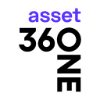Home
Mf Research
Filters
Search Results : 7037 Mutual
funds
Sort By :
Return - High To Low

1Y
272.29%
3Y
54.71%
5Y
28.27%
SI
6.40%
Nav
1,066.24
Risk
-

1Y
272.29%
3Y
54.71%
5Y
28.27%
SI
6.40%
Nav
3,982.41
Risk
-

1Y
268.76%
3Y
6.03%
5Y
5.73%
SI
0.00%
Nav
10.00
Risk
-

1Y
268.76%
3Y
6.03%
5Y
5.73%
SI
0.00%
Nav
10.00
Risk
-

1Y
268.76%
3Y
6.03%
5Y
5.73%
SI
10.44%
Nav
11.05
Risk
-

1Y
268.76%
3Y
6.03%
5Y
5.73%
SI
0.00%
Nav
10.00
Risk
-

1Y
268.76%
3Y
6.03%
5Y
5.73%
SI
8.13%
Nav
12.65
Risk
-

1Y
192.10%
3Y
5.12%
5Y
6.22%
SI
12.35%
Nav
15,041.28
Risk
-

1Y
192.10%
3Y
-35.38%
SI
-35.38%
Nav
2.05
Risk
-

1Y
192.03%
3Y
6.08%
5Y
7.39%
SI
13.67%
Nav
12,430.00
Risk
-

Others
|
Others Fund Of Funds Overseas
1Y
132.96%
3Y
45.85%
5Y
21.26%
SI
9.17%
Nav
49.53
Risk
Very High Risk

1Y
126.26%
3Y
12.12%
5Y
12.12%
SI
7.86%
Nav
10.40
Risk
-

1Y
126.26%
3Y
12.12%
SI
15.21%
Nav
16.07
Risk
-

1Y
126.26%
3Y
12.12%
5Y
12.12%
SI
5.44%
Nav
11.77
Risk
-

1Y
126.26%
3Y
12.12%
5Y
12.12%
SI
5.48%
Nav
11.75
Risk
-
1
2
3
Show 1 of 470 Pages.
FAQs
Is a Mutual Fund with a Lower NAV Better?
What Are the Charges in Mutual Fund Investments?
What Are the Tax Benefits of Mutual Funds?
Is It a Good Time to Invest in Mutual Funds?
What Is the Difference Between Dividend and Growth Plans?
Should I Invest in Infrastructure Funds?
What Are Sector-Specific Funds/Schemes?
What Happens If I Miss an SIP Payment?
How Can I Compare Different Mutual Funds?
Get In Touch
Interested in exploring more about JezzMoney Mutual Fund Distributors Software? Submit the form, and we will respond quickly.
Get Expert Advice on Investment in Mutual Funds!
- Certified mutual fund distributors around India will reach out to help you build your future.
- Connect with trusted mutual fund distributors and find them from your city and pincode area.
- JezzMoney is only the mediator to help you connect with these certified professionals.
- It is your obligation to gather accurate information when you receive contact from our platform.



